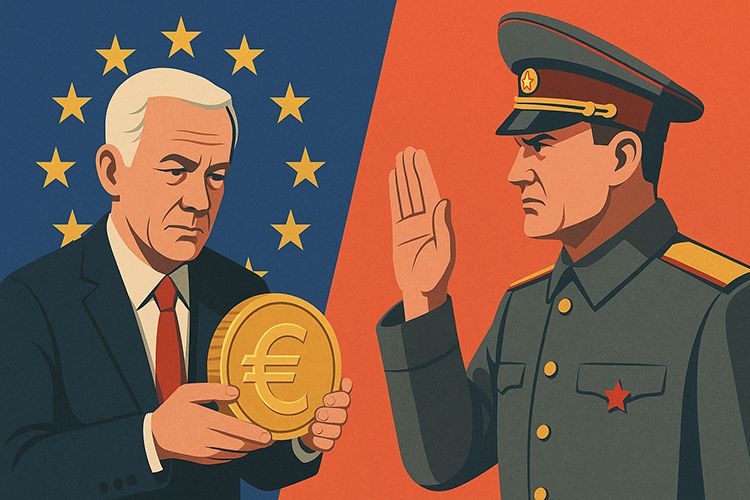2025-09-28
indicators

Germany’s Chancellor Friedrich Merz has called on the European Union to deepen its support for Ukraine by converting frozen Russian reserves into a vast interest-free loan. The plan, now being debated in Brussels, would build on earlier measures by the G7 that tapped profits from immobilised Russian funds, scaling them into a much larger package worth up to €140 billion. Unlike outright confiscation, which remains legally contested, the scheme would keep the underlying assets locked but use their returns and balances as collateral for long-term borrowing. Officials say this structure could provide Kyiv with a reliable stream of financing while limiting legal exposure for the bloc. One option under review is to issue new securities to replace the frozen ones, with a separate vehicle managing repayment. For Ukraine, the potential loan would offer a financial anchor at a time when its budget remains under severe strain and American political support looks uncertain. European leaders argue that such a facility could sustain salaries, defence production, and essential services, while also boosting the continent’s own industrial capacity for arms and air defence. The proposal has already provoked sharp reactions. Moscow has denounced past moves to redirect profits from its reserves and is expected to challenge any expanded plan in court. Some European capitals remain wary of the legal and financial risks, though others are prepared to push ahead even without unanimous backing. The timing coincides with growing pressure on Russia’s own economy. Defence spending has climbed to nearly eight percent of national output, funded by new tax increases and reliance on oil and gas sales at discounted rates. Partnerships with North Korea and Iran have provided Moscow with ammunition and drones, while trade with China continues to supply key goods. Analysts believe this can sustain the war effort for now but at mounting economic cost. Western governments stress that their objective is to defend Ukraine’s independence and uphold international justice, not to engineer political change in Moscow. Yet the size of the proposed loan underscores the scale of Europe’s commitment and its determination to ensure Ukraine can keep fighting. Supporters of the plan say anchoring Ukraine’s support to Russian state assets would send a strong message that the costs of the war will ultimately fall on the aggressor. They also argue that the approach could insulate EU budgets from fatigue as the conflict drags on. Sceptics counter that the plan risks unsettling confidence in Europe’s role as a safe place for sovereign reserves. Some legal specialists warn that even carefully designed mechanisms may face challenges in European courts. Ukrainian leaders have welcomed the debate as proof that Europe remains committed for the long term, while Russian officials continue to condemn such measures as economic aggression. As the financial discussions play out, rhetoric between Moscow and the West has sharpened. Russia’s envoy to France warned this week that any attempt by NATO to shoot down Russian aircraft would be seen as an act of war. The statement highlights how economic initiatives and military risks are increasingly connected, underscoring the tense environment in which the EU is weighing one of its most ambitious financial undertakings since the conflict began.

